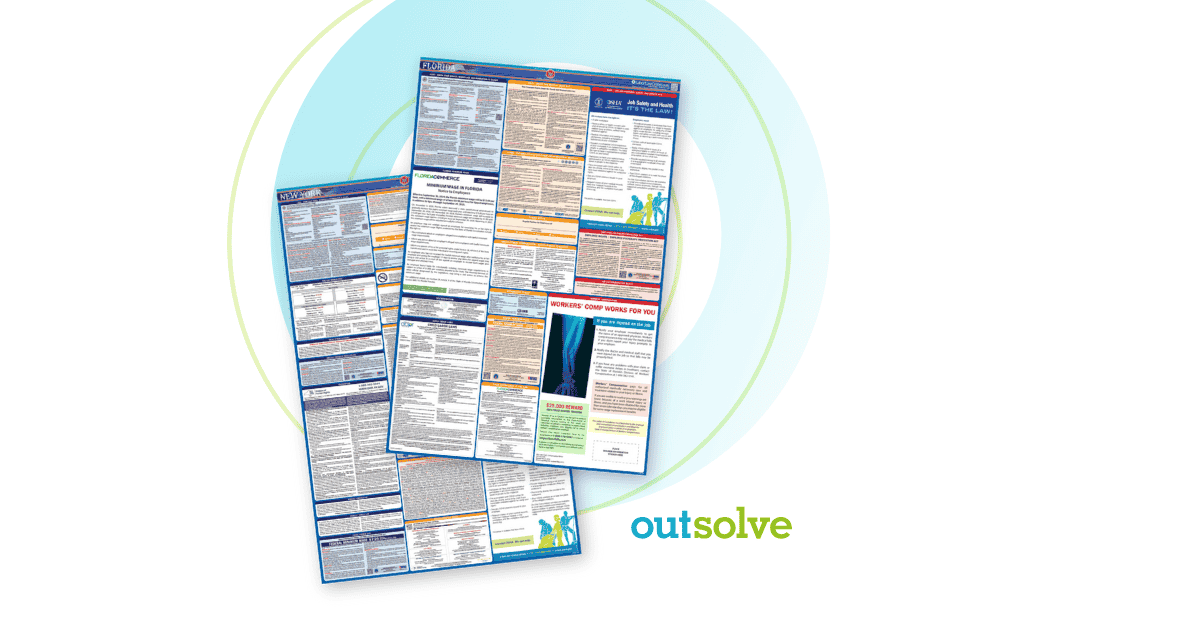
Fair and equitable compensation practices are not just a matter of compliance—they’re necessary for attracting and retaining top talent and for cultivating a positive and inclusive work environment. HR understands that compensation is a key area where issues of fairness, transparency, and equality can either make or break a company’s culture and reputation. A pay equity audit is one of the most effective tools in addressing compensation issues, as it seeks to make sure that employees are compensated fairly, regardless of gender, race, or other discriminatory factors. When an audit is conducted, HR can then address and rectify any issues that are found.
Regardless of the size or industry of your business, conducting regular pay equity audits can have a tremendous and positive impact on your company’s legal compliance, employee satisfaction, and overall success.
Let’s dive into the importance of pay equity audits, how to conduct them, and best practices for ensuring that your company remains consistent and committed to fair pay practices for all employees.
What is a Pay Equity Audit?
A pay equity audit is an in-depth analysis of a company’s compensation practices, with the main purpose being to make sure that employees are paid fairly for the work they do, without discrimination based on gender, race, or other personal characteristics. Pay equity audits are typically used to identify any pay disparities within the organization, particularly across different teams that perform similar work.
The scope of a pay equity audit can vary. Some companies may focus on pay equity compliance mostly for legal requirements, while others might use audits to examine internal practices and measure how well they’re supporting a fair and inclusive work culture.
The results of a pay equity audit can help HR understand whether their current compensation practices are aligned with their goals around salary equity. Additionally, conducting a pay equity analysis helps uncover any unintentional or systemic wage disparities.
Why Organizations Should Conduct Pay Equity Audits?
Conducting a pay equity audit isn’t just a best practice; it's also critical for legal compliance, earning employee trust, and promoting long-term company success. Let’s explore why HR needs to prioritize this important process:
- Legal Compliance: Pay equity legislation continues to be a key focus in the employment law arena, and that trend is expected to increase. The Equal Pay for Equal Work Act, along with state-specific pay equity laws, mandates that businesses provide equal pay to employees performing the same or similar roles, regardless of gender or race. Companies that fail to comply with these laws risk facing significant penalties, lawsuits, damage to their reputation, and negative financial impacts. A pay equity audit helps HR stay in sync with compliance requirements. By analyzing pay data and identifying any disparities, HR can partner with management and legal counsel to proactively address potential issues before they escalate into legal concerns.
- Promotes Fair Pay Practices: One main reason for conducting a pay equity audit is to ensure that your company is following fair pay practices. Ensuring equitable pay helps reinforce the company’s commitment to fairness and transparency. It also shows employees that the organization values their contributions and is committed to recognizing their work on a “level playing field”. Fair pay practices help increase levels of trust and engagement among the workforce. When employees feel they are being fairly compensated for their work, they are more likely to remain motivated, engaged, productive, and committed to the company’s mission. On the contrary, wage disparity can decrease morale, increase turnover, cause reputational damage, and even make it more difficult to attract potential candidates during the recruiting process.
- Identifies and Addresses Wage Disparities: A pay gap analysis helps highlight pay disparities between employees in similar roles or job categories. These disparities might arise due to unconscious biases, historical pay practices, or differences in how roles are valued within the organization. By conducting a pay equity audit, HR can identify these gaps and take the necessary steps to address them. For example, gender pay gap and racial wage disparities have been persistent challenges in many organizations. A pay equity audit can uncover where these gaps exist and help HR create a plan to correct them. Addressing these issues not only promotes fairness but can also enhance the company’s reputation as an employer of choice for diverse talent.
- Mitigates Risk: A compensation audit can help mitigate risks associated with any wage disparity and gender pay issues. If a company has a significant pay gap that does not get addressed, then it could face employee dissatisfaction, potential lawsuits, and damage to its reputation. By conducting regular pay equity audits, companies can decrease these risks and demonstrate their commitment to equitable and fair practices. In addition to legal and reputational risks, failing to address pay disparities can result in decreased employee retention and engagement, as employees who feel underpaid or unfairly treated are more likely to leave for companies. Conducting pay equity audits is a proactive approach to overseeing and reducing these risks.
Steps to Complete a Pay Equity Audit
HR teams need to follow a systematic approach when conducting a pay equity audit in order to ensure that it’s a thorough, objective, and actionable process. Here is a step-by-step guide to completing a pay equity audit:
- Define Objectives and Scope: The first step is to clearly define the objectives and scope of the audit. A question to ask at this stage is: Are you conducting this audit solely for compliance purposes, or are you also looking to assess internal equity and address any potential wage disparities? Next, determine which employee groups the audit will cover, such as specific job levels, departments, or locations. Defining the scope of the audit ensures that you focus on the right data and make relevant comparisons.
- Gather Compensation Data: The next step is to gather all compensation-related data, including salaries, bonuses, benefits, and any other forms of pay employees receive. Be sure to collect demographic data related to employees as well, such as gender, race, tenure, and role. This data will allow you to determine whether there are any pay disparity patterns. It’s also critical that the data you collect is accurate, thorough, and consistent. Missing or incorrect data can skew your findings and lead to incorrect conclusions about your company’s compensation practices.
- Analyze Pay Disparities: Once you have all the necessary data, it’s time to dig in and analyze it. The goal is to identify any pay disparities that exist within job categories or similar roles. Conducting statistical analyses will allow you to determine whether there are significant differences in pay that cannot be explained by legitimate factors such as education, experience, or performance.
- Investigate Causes of Disparities: If any pay disparities are discovered, it’s important to investigate the causes as soon as possible. Questions to consider include:
- Are these disparities due to legitimate factors, such as differences in education or years of experience?
- Are they the result of systemic issues, such as biased hiring practices or inequitable pay policies?
Evaluating the company’s hiring, promotion, and compensation policies is key to understanding the root causes of disparities. For example, if women are paid less than men for the same job, the disparity may be due to historical salary setting practices or biases in the hiring process. - Develop an Action Plan: If the audit reveals any pay disparities, the next step is to develop an action plan to address them. The action plan should focus on making adjustments to compensation where necessary and revising policies to prevent future disparities.
Actions might include:
- Adjusting salaries: This can be done where necessary to ensure equity
- Updating compensation policies: To ensure alignment with fair pay standards
- Developing long-term strategies: To maintain equitable pay structures, such as introducing new pay bands or revising job classification systems
- Monitor and Maintain Pay Equity: Don’t stop there! It is important to regularly monitor and maintain pay equity. Conducting pay equity audits should be an ongoing practice—whether annually, bi-annually, or on another schedule that makes sense for your business. Regular audits will help prevent future pay disparities and ensure that the company continues to maintain pay equity compliance. HR should also work to create a culture of pay transparency, where employees are informed about how pay decisions are made and understand the company’s commitment to fair compensation. Talent acquisition can also emphasize the importance of pay equity within the organization when recruiting new applicants.
Pay Equity Audit Best Practices
To support the success of your pay equity audit, consider these best practices:
- Ensure confidentiality: Since pay equity audits involve sensitive data, it’s essential to maintain confidentiality and secure handling of this information to protect employee privacy.
- Engage Compensation Consultants: Collaborating with compensation consultants helps ensure that the audit complies with applicable laws and regulations. This is crucial as you don’t want to cut corners in this area. Doing so increases your risk or legal issues down the road.
- Communicate findings: After the audit is completed, communicate the findings to employees. Again, transparency is key.
What Pay Equity Audits Mean for Your Organization
A pay equity audit is an invaluable and necessary “check and balance” tool to help ensure that your company is treating its workforce fairly. By conducting regular audits, HR can identify, and address pay disparities, support compliance, and build a stronger, more inclusive workplace culture. A well-executed pay equity audit demonstrates a company’s commitment to salary equity and positions the company as a leader and employer of choice in fair compensation practices.
OutSolve can help your organization remain compliant and conduct pay equity audits. One of our experienced consultants can help walk you through the process and determine the best course of action for your business.
Nick Jones recently joined OutSolve’s compensation team as an analyst specializing in pay equity and market pay analyses. Nick also supports federal contractors with pay data analytics for OFCCP compliance reviews and state pay reporting. Experienced in interpreting big data, he provides companies with the vital information needed to ensure equity, efficiency, and competitiveness in their compensation. Nick graduated from Tulane University and is currently working on his master’s degree in Data Analytics at the University of New Orleans.
Recent Posts
Related Posts

Former DOL Officials Issue Open Letter to Federal Contractors
On April 15, 2025, ten former senior officials from the U.S. Department of Labor (DOL), including past leaders of the Office of Federal Contract...

The Ultimate Guide to Multi-State Labor Law Posters
Human Resources professionals understand how important and challenging it can be to remain updated and compliant with labor laws. This is especially...

Countdown: Final Days of the 90-Day Safe Harbor Period for AAPs
April is here and with that comes the end of the 90-day safe harbor period for federal contractors complying with EO 11246. As April 21, 2025,...
 Nick Jones
Nick Jones



